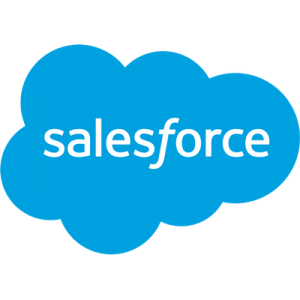A sales process is a series of repeatable steps that the sales team will take with a prospect to sell them the product. Sales Funnel is commonly used term for a Sales Process, I feel that a sales funnel is different though as it basically based on activity rates, basically the more you do the more that you will hopefully close. Another commonly used term is Sales Pipeline, and I think it’s a really good term that fits. Building a good sales process will take a lot of time and effort but it will improve your business.
Defining a Sales Process is important so that managers can accurately forecast and create realistic pipeline reporting. A properly defined process reduces wastes and is able to scale. In the past, companies simply used to pay high commissions and let the sales staff figure out how to prospect and make the sales that’s proven to work okay in times of rapid growth but it makes onboarding new hires difficult, and predicting revenue incredibly difficult.
Salesforce, out of the box, has a lot of the necessary tools to implement a simple Sales Process. Most of Salesforce’s standard objects are related to the sales stage
Leads are a person that has contact information that you should be able to sell to. Leads have three main sets of standard fields: Business Info, Contact Info, and Address Info. One of the most important fields for future data analysis and understanding whether your company’s marketing is effective is the Lead Source. I have written a blog article with a bunch of Lead Source Best Practices.
Usually after talking to the lead or reviewing what the lead has done the Sales Rep will qualify them. Leads should be qualified into Accounts, Contacts, and Opportunities as soon as possible. If your company is planning on doing a lot of heavy automation, you may want to Automatically Convert Leads in Apex.
Accounts are the businesses that you have some sort of relationship with. This could be a customer, a partner or something else. I recommend setting up different record types based on the Type field. Usually it makes sense to set the Record type in a trigger or process builder whenever the Type field has been changed. Record Types allow different page layouts to be setup, allow for different workflows or processes.
Contacts are the people that are in the business that you need to monitor and be in touch. Most often, these will only be the people that Sales and Support need to get in contact with.
Opportunities are deals in progress. Opportunities are very different from Leads, you can read about the differences in the blog article What’s the Differences Between a Lead and an Opportunity. Opportunities have quite a few standard fields which are used in the Sales Process. For example, one of the most important fields is the Opportunity Stage.
This Stage field should define the probability of a sale taking place from the sale’s persons perspective and should be used to determine what the Sales Rep should be doing with the Opportunity. Companies spend a significant amount of energy and expense trying to determine what the stages are and what should be done at each stage.
Make sure that it’s very clear to the sales team when they should be changing the Sales Stage because the wrong stages being set will create inaccurate forecasts. In addition, as your company grows you will probably start looking into implementing marketing automation solution. Commonly used Sales Stages are variations of the following:
- Awareness: In this stage the prospect has become aware of your company and the solution you are providing. Usually your website will do most of the talking in this stage.
- Interest: the sales rep will try to drum up interest. It usually makes sense to send them some white papers, suggest an ebook, and provide educational webinars.
- Evaluation: In the Evaluation Stage they are comparing your company to your competitors, so it makes sense to have Case Studies, Samples (if Applicable), and conduct demos.
- Decision: Sales Rep is going to provide some customer testimonials, additional proof, etc.
- Quote / Negotiation: In this sales stage the Sales Rep is going to send a customized quote, and probably provide some final literature about ROI.
- Closed/Won: This is the final stage of the process, this is where the buyer confirms they want the product are are ready to pay. In the case of B2B sales, this will probably involve purchase orders.
- Closed/Lost: this isn’t really the ideal stage, but sometimes there’s just somebody your company can’t sell to. Make sure your company is Tracking Why a Opportunity or Lead has been lost.
Make sure that you have as few sales stages as necessary, so that it’s not impossible to see what’s happening when looking at the forecast and pipeline reporting.
Regardless of the stages that you decide to use, we always need to remember that the focus needs to be on the customer and what they actually need and when they need it. Marketing and the right amount of comment at the right time can help win an opportunity. In the case of a really long sales cycle, make sure the sales team are leaving notes for themselves. It’s not uncommon for Opportunities to get stuck in a stage for a while.
Probability is the likelihood that the opportunity will be sold. It’s used to calculated the Expected Revenue.
Expected Revenue is a formula field that’s equal to Amount * Probability. It doesn’t really make a lot of sense when you look at one opportunity, but across multiple opportunities in the Sales Pipeline and Forecasting Reports it gives a pretty good idea of how much revenue will be won.
Forecast Category is used in the Pipeline Reporting.
There’s some boolean formula fields that can be used in reporting. “Closed” and “Won” are pretty self explanatory. Closed will be true if the Stage Type is “Closed/Lost” or “Closed/Won” and Won will be true if the Stage is “Closed/Won”.
Here’s Why Developers Need to Know What a Sales Process is
If you are a developer and working for a company that is using Salesforce, you need to know this so you can actually provide proper advice to the admins, and sales team. If you want to make worthwhile contributions to the sales team and grow your career, knowledge of the sales process is a good stepping stone.




